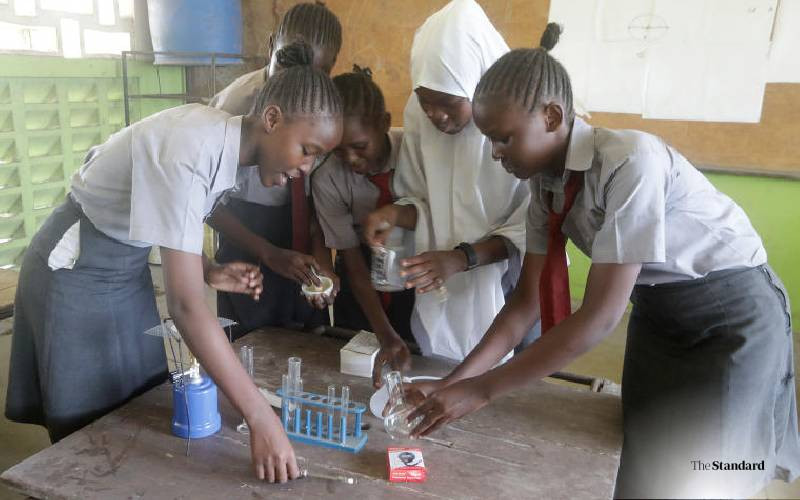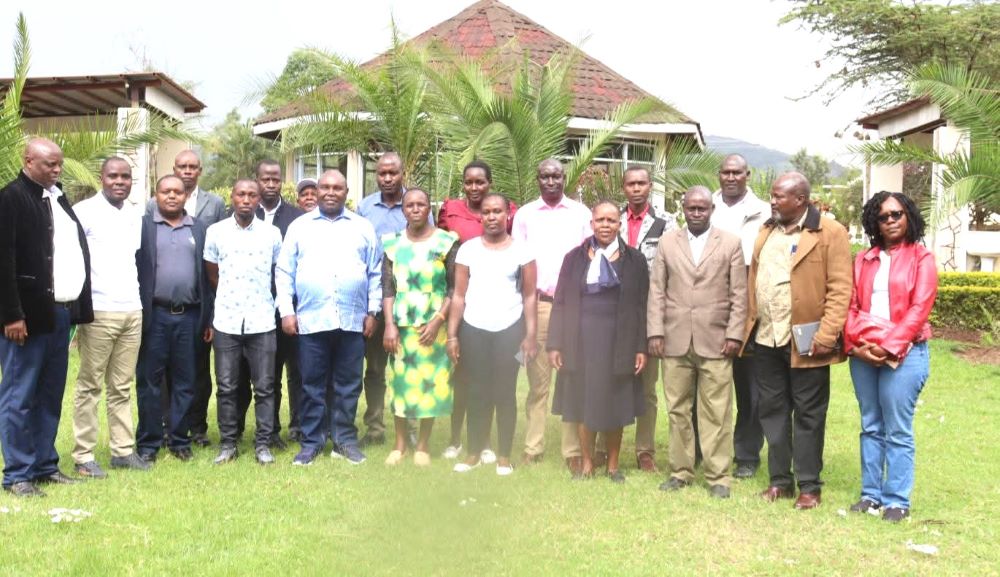By Azael Masese
Teachers will soon be required to use only vetted and approved Instructional Materials (IM) in their effort to aid the acquisition of knowledge, skills and abilities by learners.
In a revised policy that seeks to control what is passed in the country’s Basic Education institutions, the learners will also be required to use only resources as dictated by the Government.
The new changes are contained in the Education Sector Policy on Instructional Materials 2016, which replaces National Policy on Textbooks Publication, Procurement and Supply for Primary Schools.
The latter was published in 1998 but education stakeholders feel a lot has happened since then hence the need to realign the education sector to the 21st Century expectations.
While the 1998 IM policy targeted primary schools, the revised policy will apply to all institutions of basic education.
Besides, it is expected to check the currently unregulated stationery usage especially on pricing levels and minimum physical production and material specifications.
It is also expected to control the standards of equipment and chemicals used for science subjects used in schools, with fingers pointed at a weak monitoring and evaluation framework of the IM supply chain.
Consequently, a comprehensive instructional materials submission, evaluation and approval guidelines will be published to guide the process of approval of educational materials for use in all basic education institutions.
Teachers from all subject areas at the institutional level will be in the selection committee to decide the IM to be considered for use.
Besides, two parents representing the Parents Teachers Association (PTA) will make it to the Instructional Materials Selection Committees (IMSCs).
This comes at a time when the Government has taken over the responsibility of providing textbooks to primary and secondary schools and to achieve the intended 1:1 textbook ratio.
There is also a shift to competence based curriculum with the attention focused on producing a skill-based labour force fit within the 21st century.
Education CS Amina Mohamed said the policy will create a sustainable framework where materials are made available when needed and in sufficient quantities to meet evolving curriculum requirements.
“This will also seek to entrench transparency and accountability in the vetting and approval of materials to ensure the right books get to the learner,” she noted.
The rapid change in ICT, she stated, requires that the policy materials takes into account new ideas and approaches to teaching and learning materials development, publication and supply.
The criteria and procedures for selection and procurement are provided in the Textbook Management Handbook (TMH).
Consequently, Basic Education Institutions will be required to form Instructional Materials Selection Committees (IMSCs) to oversee the selection and procurement processes.
“It is important that schools stick to the book policy and select one course book per subject per class,” noted Basic Education Principal Secretary, Belio Kipsang’.
The PS noted that a Ministerial Instructional Vetting Committee (MIMVC) will be formed to direct and supervise the entire IM provision process from submission, evaluation, approval, delivery and monitoring at the institutional level.
To ensure efficient IM management, there shall be established an IM Management Unit (IMMU) under Director General, Ministry of Education.
The policy was developed with input from the KICD, KISE, KNEC and the School Equipment Production Unit (SEPU), Kenya Publishers Association, Kenya Booksellers and Stationers Association, civil society and other development partners.
According to Belio, the Office of the Independent Administrator (OIA), established under the Directorate of Policy, shall coordinate the submission, evaluation and approval process of instructional materials for the Basic Education Sector.
“It will advise MIMVC on the evaluation results for the consideration and approval,” he said, adding that only materials that have been subjected to the vetting process will be approved and listed in the Orange Book for procurement and use in Kenyan institutions.
The Orange Book will be reviewed and updated annually to take into account new approved materials.
This is unlike the past where the responsibility of providing IM, tuition, and examination fees was placed on parents and local communities while the Government paid teachers’ salaries and education administration.
The policy covers the development, procurement, supply, care and maintenance of teaching and learning materials used in basic education institutions and training.
It also places the responsibility of the resources on learners, teachers, parents, public and private institutions, county governments, content developers, evaluators, publishers and booksellers.
The policy is expected to guide the production, distribution and storage of reading materials supplied to schools.
The purpose of this policy is to improve the process of providing IM by strengthening the decision-making mechanisms and accountability at the institutional level.
Under the revised policy, the County Director of Education shall evaluate and monitor the process of IM provision in institutions.
They will also be required to collect, collate and verify data received from institutions on IM quarterly.
Besides, they will be expected to enhance audit of funds used for IM at the institutional level as well Enhance the capacity of institutions in data and information management.
The education officials will maintain accurate and credible County data on IM and submit bi annual report on IM to the Ministry of Education.
They will mobilise resources for Monitoring and Evaluation of IM through PPP and will be reviewed from time to time to be in line with current trends and emerging issues.
The coming of the new policy follows fears that Research, Monitoring and Evaluation activities have not been harmonised resulting in duplication of effort and inefficient use of resources.
Under the new arrangement however, the Monitoring and Evaluation process shall be undertaken at different levels, namely institutional, county and national.






